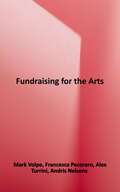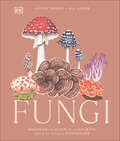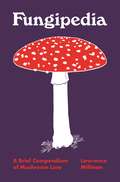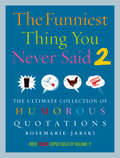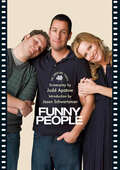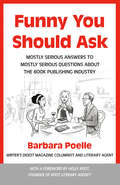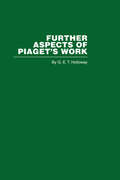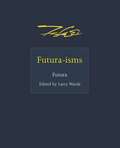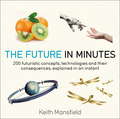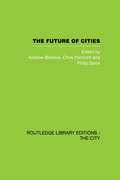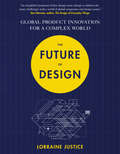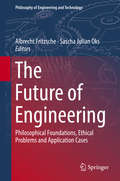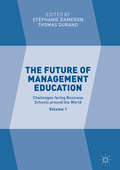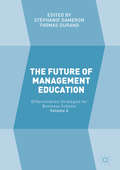- Table View
- List View
The Fundamentals of Political Science Research
by Paul M. Kellstedt Guy D. WhittenPaul M. Kellstedt's and Guy D. Whitten's The Fundamentals of Political Science Research provides an introduction to the scientific study of politics, supplying students with the basic tools needed to be both critical consumers and producers of scholarly research in political science. The book begins with a discussion of what it means to take a scientific approach to the study of politics. At the core of such an approach is the development of causal theories. Because there is no magic formula by which theories are developed, the authors present a series of strategies and develop an integrated approach to research design and empirical analyses that allows students to determine the plausibility of their causal theories. The text's accessible presentation of mathematical concepts and regression models with two or more independent variables is a key component to this process, along with the integration of examples from political science and the real world to help students grasp the fundamental concepts.
The Fundamentals of Political Science Research
by Paul M. Kellstedt Guy D. WhittenReligious ideas and actors have shaped Asian cultural practices for millennia and have played a decisive role in charting the course of its history. In this engaging and informative book, Thomas David DuBois sets out to explain how religion has influenced the political, social, and economic transformation of Asia from the fourteenth century to the present. Crossing a broad terrain from Tokyo to Tibet, the book highlights long-term trends and key moments, such as the expulsion of Catholic missionaries from Japan, or the Taiping Rebellion in China, when religion dramatically transformed the political fate of a nation. Contemporary chapters reflect on the wartime deification of the Japanese emperor, Marxism as religion, the persecution of the Dalai Lama, and the fate of Asian religion in a globalized world.
Fundamentals of Roman Private Law
by George MousourakisRoman law forms a vital part of the intellectual background of many legal systems currently in force in Continental Europe, Latin America, East Asia and other parts of the world. Knowledge of Roman law, therefore, constitutes an essential component of a sound legal education as well as the education of the student of history. This book begins with a historical introduction, which traces the evolution of Roman law from the earliest period of Roman history up to and including Justinian's codification in the sixth century AD. Then follows an exposition of the principal institutions of Roman private law: the body of rules and principles relating to individuals in Roman society and regulating their personal and proprietary relationships. In this part of the book special attention is given to the Roman law of things, which forged the foundations for much of the modern law of property and obligations in European legal systems. Combining a law specialist's informed perspective with a historical and cultural focus, the book provides an accessible source of reference for students and researchers in many diverse fields of legal and historical learning.
Fundamentals of Trusts and Estates
by Roger W. Andersen Ira Mark BloomThe updated version of this innovative casebook contains numerous notes, questions, and problems that illuminate both the human and the doctrinal dramas, often by placing students in various roles. These problems and questions help students develop skills and values to carry throughout their professional lives. In addition, Fundamentals of Trusts and Estates includes excerpted readings, bibliographical references, sample documents, and provisions from Uniform Codes, Restatements, and other primary sources. Policy debates, ethical issues, and practical considerations are woven throughout the material.
Funding your Career in Science
by Ritsert C. JansenDreaming of a successful future in science? This practical guide for students, postdocs and professors offers a unique step-by-step approach to help you get the funding to start or consolidate your own research career. From preparing and writing effective career grant applications, to understanding how funding agencies will evaluate them, it provides guidance to enhance your skills and combine them with those of others who can support you on the road to success. Learn how to generate great original ideas for your application, strategically prepare and optimise your plan and rsum, develop a convincing title and abstract, convert reviewers' comments to your advantage, and succeed at a selection interview. With numerous valuable tips, real-life stories and novel practical exercises, this must-read guide provides everything you need to optimise your funding opportunities and take responsibility for your own career in science.
Fundraising for the Arts
by Francesca Pecoraro Alex Turrini Mark VolpeThe work of fundraising has transformed into a sophisticated and competitive profession, attracting talented and dedicated leaders who wish to use their skills to contribute to a secure financial future for their organizations. The arts and cultural field has not been an exception to these pressures above all in times when new emergencies and pressures shrink the funding opportunities of arts organizations both in Europe and in the US. <p><p>This book aims to be a reference point for upper-level undergraduate students, graduate students, and junior practitioners in the arts management field. It will provide core insights about and inspiration for careers in fundraising for the arts and high-quality content (including advanced topics such as the organizational dynamics of creating a culture of philanthropy, E-D-I in fundraising, the use of digital and social media platforms, board involvement, performance management and accountability) that will appeal to novice or experienced practitioners.
Fungi: Discover the Science and Secrets Behind the World of Mushrooms (British Mycological Society Symposia Ser. #Series Number 15)
by Lynne Boddy Ali AshbyA stunning, authoritative book on the fungal kingdom, uncovering the hidden world of more than 300 global speciesDiscover the fascinating stories behind 300 species of fungi and understand the world of mushrooms like never before!Did you know that fungi put the fizz in champagne and the flavor in chocolate? Fungi is everywhere we look in a forest, under the sea, and in the kitchen.In this beautiful book, leading fungal biologists Lynne Boddy and Ali Ashby bring you closer to 300 species of mushrooms and lichens through fascinating facts, mushroom datasets, and detailed illustrations. Discover some of the fastest speeds in nature, specimens that glow in the dark, and fungi that clean up oil spills.Humans have had a close relationship with mushrooms for thousands of years-from using the shiitake for healing, to telling stories of enchanted fairy rings, to cooking gourmet dishes with rare specimens. Bringing together technology, medicine, food, culture, and nature, this fascinating book will open your eyes to the wonders of the hidden kingdom all around us.With tips for mushroom spotting in any habitat, species identification notes, a grow-your-own guide, and more, this book is the ultimate fungi lover's companion.
Fungipedia: A Brief Compendium of Mushroom Lore
by Fungipedia Lawrence MillmanAn illustrated mini-encyclopedia of fungal lore, from John Cage and Terrence McKenna to mushroom sex and fairy ringsFungipedia presents a delightful A–Z treasury of mushroom lore. With more than 180 entries—on topics as varied as Alice in Wonderland, chestnut blight, medicinal mushrooms, poisonings, Santa Claus, and waxy caps—this collection will transport both general readers and specialists into the remarkable universe of fungi.Combining ecological, ethnographic, historical, and contemporary knowledge, author and mycologist Lawrence Millman discusses how mushrooms are much more closely related to humans than to plants, how they engage in sex, how insects farm them, and how certain species happily dine on leftover radiation, cockroach antennae, and dung. He explores the lives of individuals like African American scientist George Washington Carver, who specialized in crop diseases caused by fungi; Beatrix Potter, creator of Peter Rabbit, who was prevented from becoming a professional mycologist because she was a woman; and Gordon Wasson, a J. P. Morgan vice-president who almost single-handedly introduced the world to magic mushrooms. Millman considers why fungi are among the most significant organisms on our planet and how they are currently being affected by destructive human behavior, including climate change.With charming drawings by artist and illustrator Amy Jean Porter, Fungipedia offers a treasure trove of scientific and cultural information. The world of mushrooms lies right at your door—be amazed!
Funniest Thing You Never Said 2
by Rosemarie JarskiThe bestselling, blockbusting, bumper book of humorous quotations rides back into town with 6,000 more hilariously funny quotes. From times past to the modern day, classic funnies to contemporary wit, The Funniest Thing You Never Said 2 delivers an unbeatable selection of fantastic and hilarious quotes on every subject under the sun. Featuring topics as diverse as celebrity to religion, and including a cast of quotees ranging from Oscar Wilde to Homer Simpson, there's something here for everyone with a sense of humour.'I am willing to love all mankind, except an American.' - Samuel Johnson'Glastonbury was very wet and muddy. There was trench foot, dysentery, peaches ... all the Geldof daughters.' - Sean Lock'Politics would be a helluva good business if it weren't for the goddamned people.' - Richard Nixon'I've had more women than most people have noses.' - Steve Martin'I have the simplest tastes. I'm always satisfied with the best.' - Oscar Wilde 'Well, it's 1am. Better go home and spend some quality time with the kids.' - Homer Simpson'All I know is I'm not a Marxist.' - Karl Marx'I'm the pink sheep of the family.' - Alexander McQueen
Funny People: The Shooting Script (Shooting Script)
by Judd Apatow Jason SchwartzmanIn Funny People, writer/director Judd Apatow finds humor in one of the biggest struggles of a person’s lifetime.Through the story of a famous comedian, George Simmons (Adam Sandler), who has a near-death experience, and what he does with a second chance, Apatow addresses a question that hasn’t been touched with such trademark bluntness: If you had the chance to start all over again, would you be the same jerk you always were? The film stars Adam Sandler, Seth Rogen, Leslie Mann, Eric Bana, Jonah Hill, Jason Schwartzman, RZA, Aziz Ansari, and Aubrey Plaza.
Funny Shaped Balls: The Biggest Book of Sporting Jokes Ever
by Jonathan SwanOver 2,000 sporting funnies from every sport: football, rugby, cricket, golf, boxing,snooker and beyond...Two men fishing on a river bank in a canal in London on a Saturday afternoon miles away from a radio or TV. Suddenly one man turns to the other and says, 'Spurs have lost again.' The other man is astonished and says, 'How on earth do you know that?' The other man replies, 'It's quarter to five.'After the success of the George Foreman grill, Audley Harrison is launching his own toaster. The problem is it can only do four rounds.What does Steve Harmison put in his hands to make sure the next ball almost always takes a wicket? A bat
Funny You Should Ask: Mostly Serious Answers to Mostly Serious Questions About the Book Publishing Industry
by Barbara PoelleThere is a certain perception from the outside that the publishing industry is a near insurmountable fortress, with gatekeepers and naysayers manning the turrets looking for any way to fire a flaming arrow at the dreams of an aspiring writer. Funny You Should Ask, based on the popular Writer's Digest column of the same name, assists to deconstruct, inform, and illuminate the path to publication and beyond, all while dispelling the rumor that those in the industry are better than thou. And even though each writer's publishing journey is like a game of PLINKO--you can drop the chip in the same slot every time and get a different result--there are still common constructs and confusions that can be shared and explored together in order to help inform all writers. From understanding the nuts and bolts of a query letter, to learning how to process the soul-searing envy of watching someone else's career flourish, to how to talk to your editor, veteran literary agent Barbara Poelle covers the approach and execution of the common and uncommon bumps along the traditional publishing path. Includes • More than 100 questions answered including expanded answers to topics that didn't get the full treatment in a column • Writing exercises, submission checklists, and publishing BINGO for every publishing milestone
Funnybooks
by Michael BarrierFunnybooks is the story of the most popular American comic books of the 1940s and 1950s, those published under the Dell label. For a time, "Dell Comics Are Good Comics" was more than a slogan--it was a simple statement of fact. Many of the stories written and drawn by people like Carl Barks (Donald Duck, Uncle Scrooge), John Stanley (Little Lulu), and Walt Kelly (Pogo) repay reading and rereading by educated adults even today, decades after they were published as disposable entertainment for children. Such triumphs were improbable, to say the least, because midcentury comics were so widely dismissed as trash by angry parents, indignant librarians, and even many of the people who published them. It was all but miraculous that a few great cartoonists were able to look past that nearly universal scorn and grasp the artistic potential of their medium. With clarity and enthusiasm, Barrier explains what made the best stories in the Dell comic books so special. He deftly turns a complex and detailed history into an expressive narrative sure to appeal to an audience beyond scholars and historians.
The Furniture Doctor: A Guide to the Care, Repair, and Refinishing of Furniture
by George GrotzThe best-selling guide to keeping furniture in the finest and most beautiful condition, with complete information on proper repair and refinishing techniques from the legendary expert on antiques and their restoration.B & W photographs throughoutFrom the Trade Paperback edition.
Further Advances in Pragmatics and Philosophy: Part 2 Theories and Applications (Perspectives in Pragmatics, Philosophy & Psychology #20)
by Alessandro Capone Marco Carapezza Franco Lo PiparoThe two sections of this volume present theoretical developments and practical applicative papers respectively. Theoretical papers cover topics such as intercultural pragmatics, evolutionism, argumentation theory, pragmatics and law, the semantics/pragmatics debate, slurs, and more. The applied papers focus on topics such as pragmatic disorders, mapping places of origin, stance-taking, societal pragmatics, and cultural linguistics. This is the second volume of invited papers that were presented at the inaugural Pragmasofia conference in Palermo in 2016, and like its predecessor presents papers by well-known philosophers, linguists, and a semiotician. The papers present a wide variety of perspectives independent from any one school of thought.
Fußspuren von Feist in der europäischen Datenbankrichtlinie: Eine rechtliche Analyse der Gesetzgebung zum geistigen Eigentum in Europa
by Indranath GuptaIm Zusammenhang mit der Rechtsprechung zur Urheberrechtsfähigkeit einer Tatsachenzusammenstellung werden in diesem Buch die Fußspuren des in einer Entscheidung des Obersten Gerichtshofs der USA (Feist) vorgesehenen Standards in Europa ausfindig gemacht. Insbesondere wird untersucht, inwieweit diese Rechtsprechung mit dem in der Europäischen Union angenommenen und diskutierten Standard übereinstimmt. Oftmals bleiben die Gründe für die Rechtsetzung unbemerkt. Die zwingenden Umstände und die Geschichte, die dem Erlass eines Gesetzes vorausgehen, helfen dabei, die Ausgewogenheit einer bestimmten Gesetzgebung zu verstehen. Bei der Betrachtung des Prozesses der Verabschiedung der Datenbankrichtlinie (96/9/EG) wird in diesem Buch über die Bedenken nachgedacht, die im Zusammenhang mit der Feist-Entscheidung in Europa geäußert wurden.
Futura-isms (ISMs)
by FuturaA collection of fascinating quotations from the legendary artist and graffiti pioneerFutura is a living legend—a world-renowned painter, designer, and photographer who was a pioneer of graffiti art and New York City’s “subway school.” His radical abstract work in the street and on canvas established him as a central figure in an important art movement that included Jean-Michel Basquiat, Keith Haring, Rammellzee, Lee Quiñones, and Dondi White. Futura-isms is a collection of essential quotations from this fascinating artist. Gathered from four decades of interviews and panel discussions, this memorable selection illuminates Futura’s thoughts on legal and illegal art, his influences, fellow artists, and the past, present, and future. He also offers colorful memories of his adventurous life—growing up in New York City, serving in the Navy, touring with The Clash—and reflects on how his experiences have shaped his art.Select quotations from the book:“Graffiti was a way for me to exist. I wanted the world to know my name. I wanted to be somebody.”“The essence of what graffiti is . . . is creating this identity and taking it to the public.”“My whole life, I think, I’ve been a nomad.”“I was always at home in the subway system.”“People say, ‘Let’s play within the rules.’ I say, ‘No—let’s break the rules a little bit.’”
The Future in Minutes (IN MINUTES)
by Keith MansfieldWhat does the future hold? How will we live, work and entertain ourselves? What new technologies will emerge? Will humanity evolve - and perhaps live forever? Or are we facing threats that could end us - and even the whole universe? The Future in Minutes tackles these and many other fundamental questions, concisely and lucidly explaining everything from cryptocurrencies and world governments to gene therapy and colonizing planets - and painting our options for utopia or disaster.Contents include: Predicting the future; How we'll live; Shifts in society; Technology of the future; Scarcity and solutions; Politics, warfare and ethics; The quest for immortality; Transhumans and posthumans; Artificial intelligence; Threats to humanity; Space travel and colonization; Super-advanced science; and The Fate of the Earth and the Universe.
The Future of Cities
by Andrew Blowers Chris Hamnett Philip SarreThis collection of readings draws on material from a wide range of sources - from the past and present and from literature and technology - and is concentrated on the areas which seem most relevant to the planning of the future city - what is happening to the city and what we can do about it. The readings have been selected and organised to present the planning of the future city. This book was first published in 1974.
The Future of Design: Global Product Innovation for a Complex World
by Lorraine JusticeHow can today's designers better engage with new and emerging technologies to take advantage of the opportunities these technologies can bring?"An insightful treatment of how design must change to address the many challenges with a world of global companies and design teams."--Don Norman, author, The Design of Everyday Things WHAT ARE THE 10 GLOBAL FACTORS THAT DETERMINE DESIGN SUCCESS?Using a wealth of examples from across multiple industries and countries, design expert Lorraine Justice fully explores the factors that will determine your success and provides a unique framework for navigating the industry into the future.You will learn how design and innovation are being impacted by new and emerging technologies, societal demands, cultural shifts, and broader world issues. The Future of Design is practical, concise and includes guidelines for building and supporting creative teams, advice and strategies for evaluating product concepts, and interviews with product designers, inventors, and innovators from around the world.
The Future of Engineering: Philosophical Foundations, Ethical Problems and Application Cases (Philosophy of Engineering and Technology #31)
by Albrecht Fritzsche Sascha Julian OksIn a world permeated by digital technology, engineering is involved in every aspect of human life. Engineers address a wider range of design problems than ever before, raising new questions and challenges regarding their work, as boundaries between engineering, management, politics, education and art disappear in the face of comprehensive socio-technical systems. It is therefore necessary to review our understanding of engineering practice, expertise and responsibility.This book advances the idea that the future of engineering will not be driven by a static view of a closed discipline, but rather will result from a continuous dialogue between different stakeholders involved in the design and application of technical artefacts. Based on papers presented at the 2016 conference of the forum for Philosophy, Engineering and Technology (fPET) in Nuremberg, Germany, the book features contributions by philosophers, engineers and managers from academia and industry, who discuss current and upcoming issues in engineering from a wide variety of different perspectives. They cover topics such as problem solving strategies and value-sensitive design, experimentation and simulation, engineering knowledge and education, interdisciplinary collaboration, sustainability, risk and privacy.The different contributions in combination draw a comprehensive picture of efforts worldwide to come to terms with engineering, its foundations in philosophy, the ethical problems it causes, and its effect on the ongoing development of society.
The Future of Home Health Care: Workshop Summary
by Victoria WeisfeldIndividuals with disabilities, chronic conditions, and functional impairments need a range of services and supports to keep living independently. However, there often is not a strong link between medical care provided in the home and the necessary social services and supports for independent living. Home health agencies and others are rising to the challenges of meeting the needs and demands of these populations to stay at home by exploring alternative models of care and payment approaches, the best use of their workforces, and technologies that can enhance independent living. All of these challenges and opportunities lead to the consideration of how home health care fits into the future health care system overall. On September 30 and October 1, 2014, the Institute of Medicine and the National Research Council convened a public workshop on the future of home health care. The workshop brought together a spectrum of public and private stakeholders and thought leaders to improve understanding of the current role of Medicare home health care in supporting aging in place and in helping high-risk, chronically ill, and disabled Americans receive health care in their communities. Through presentations and discussion, participants explored the evolving role of Medicare home health care in caring for Americans in the future, including how to integrate Medicare home health care into new models for the delivery of care and the future health care marketplace. The workshop also considered the key policy reforms and investments in workforces, technologies, and research needed to leverage the value of home health care to support older Americans, and research priorities that can help clarify the value of home health care. This summary captures important points raised by the individual speakers and workshop participants.
The Future of Management Education
by Stéphanie Dameron Thomas DurandThis book discusses the new challenges facing Business Schools around the world with potential scenarios that may be envisioned for 2030 and strategies for stakeholders. Based on documented descriptions of competitive dynamics in the 'business' of business schools in a variety of countries, the authors highlight the fact that the 'industry' of management education is going through major changes such as new governance and business models, mergers and acquisitions, internationalization of faculty and students coexisting with entrenchment in local markets, ever more needs for financial resources, development of distant and blended learning, and increasing pressure for research output to boost rankings. With concerns surrounding the sustainability of current trends in faculty salary inflation, social acceptability of higher fees, cost of distance learning and the risk of an academic-industry divide around knowledge produced by management research, The Future of Management Education develops an analysis of business models and institution regulation. The two volumes cover the context of Business Schools in ten countries and grapples with the challenges they currently face. They specifically discuss foresight scenarios and strategic implications for stakeholders (Deans, faculty, students, prospective students, alumni, local businesses, corporations, government, accreditation bodies).
The Future of Management Education
by Stéphanie Dameron Thomas DurandThis book discusses the new challenges facing Business Schools around the world with potential scenarios that may be envisioned for 2030 and strategies for stakeholders. Based on documented descriptions of competitive dynamics in the 'business' of business schools in a variety of countries, the authors highlight the fact that the 'industry' of management education is going through major changes such as new governance and business models, mergers and acquisitions, internationalization of faculty and students coexisting with entrenchment in local markets, ever more needs for financial resources, development of distant and blended learning, and increasing pressure for research output to boost rankings. With concerns surrounding the sustainability of current trends in faculty salary inflation, social acceptability of higher fees, cost of distance learning and the risk of an academic-industry divide around knowledge produced by management research, The Future of Management Education develops an analysis of business models and institution regulation. The two volumes cover the context of Business Schools in ten countries and grapples with the challenges they currently face. They specifically discuss foresight scenarios and strategic implications for stakeholders (Deans, faculty, students, prospective students, alumni, local businesses, corporations, government, accreditation bodies).


